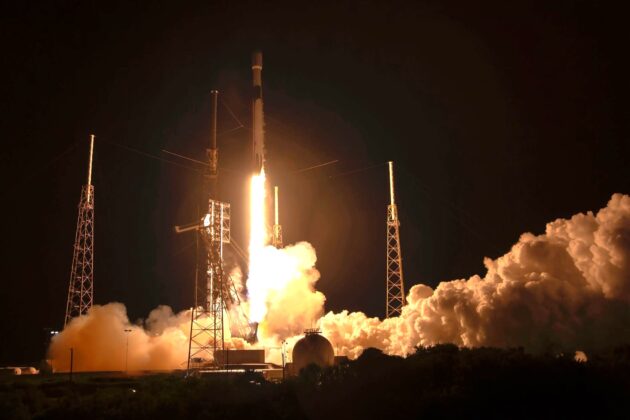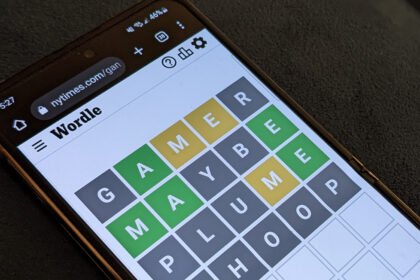In a case of strange space bedfellows, SpaceX launched 24 satellites for Amazon’s Project Kuiper constellation — which is competing with SpaceX’s Starlink network to provide internet access from low Earth orbit.
A SpaceX Falcon 9 rocket sent the satellites into space from Cape Canaveral Space Force Station in Florida at 2:30 a.m. ET Wednesday (11:30 p.m. PT Tuesday).
This was the third launch of operational satellites for Project Kuiper, coming after two batches of 27 satellites each were delivered to orbit in April and June. Those earlier missions made use of United Launch Alliance’s Atlas V rockets, but in order to meet its ambitious satellite deployment schedule, Amazon is turning to SpaceX for three Falcon 9 launches.
SpaceX enjoys a significant edge over Amazon when it comes to providing satellite broadband access: Starlink has about 8,000 satellites in orbit and more than 6 million subscribers, while Project Kuiper is just getting off the ground. Project Kuiper’s satellites are built at an Amazon facility in Kirkland, Wash., not far from the SpaceX complex in Redmond where Starlink satellites are manufactured.
Earlier in the evening, a different Falcon 9 rocket lifted off from Vandenberg Space Force Base in California and sent another 26 Starlink satellites into orbit. Both of the Falcon 9 first-stage boosters successfully landed on their respective drone ships in the Pacific and the Atlantic, minutes after launch.
About an hour after the Florida liftoff, SpaceX reported that all 24 of the Project Kuiper satellites for the KF-01 mission were successfully deployed — drawing a note of thanks from Panos Panay, Amazon’s senior vice president of devices and services.
“Congrats to the amazing Amazon Project Kuiper team on another successful launch, and a big thanks to SpaceX for the ride to space,” Panay said in a LinkedIn post. “Pumped to have another batch of Kuiper satellites heading into orbit!”
Project Kuiper’s mission operations center in Redmond took charge of the satellites to check on their health, raise their orbits and prepare for full commissioning.
Amazon says it expects to begin delivering service to customers in late 2025. The company’s license from the Federal Communications Commission calls for more than 1,600 satellites to be sent into orbit by mid-2026, with the full 3,232-satellite constellation due for deployment by 2029. Unless Amazon and its launch providers pick up the pace dramatically, the company might have to seek an extension.
Read the full article here










